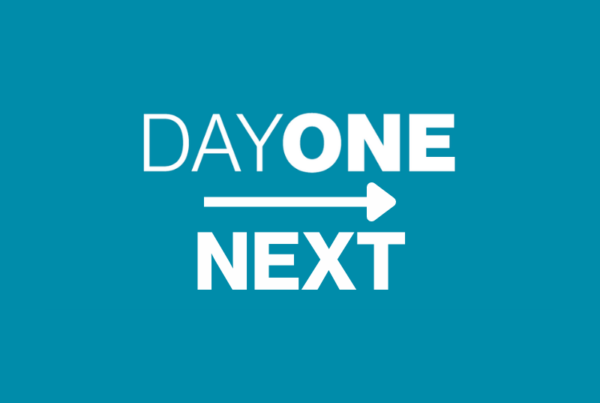Over five years ago, the team behind FindMeCure, a UK-based patient-facing platform focused on clinical trial recruitment, began noticing a pattern – challenges with screening, enrolling, and retaining patients often due to deeper issues in trial planning. To address this upstream problem, they collaborated with feasibility and clinical operations experts to develop TrialHub – a platform designed to align with real-world workflows and deliver fast, automated access to critical trial planning data. By tackling the issue of fragmented, outdated, and incomplete information, TrialHub advances FindMeCure’s broader mission of bringing research closer to patients and improving the clinical trial ecosystem from the ground up.
TrialHub equips clinical trial planners with real-time, automated access to global research data and country-specific patient insights – helping reduce costly amendments, choose the right sites, and reach eligible patients at the right time. It is the first platform to fully automate Standard of Care research and, launching in 2025, the first to offer dynamic, country- and indication-specific Patient Journey Mapping. This transforms complex qualitative sources like medical guidelines and publications into clear, actionable data.
Most clinical trials fail because they target “unicorn patients” with strict eligibility criteria that don’t reflect real-world healthcare realities, overlooking patients’ true disease burden and motivations. According to Tufts Center for the Study of Drug Development, 57% of protocols face major amendments – 45% of which are avoidable – often due to unfeasible criteria and recruitment challenges. TrialHub helps prevent these issues by aligning trial design with actual patient experiences and local healthcare contexts, ensuring more realistic and successful recruitment.
TrialHub’s innovative approach to understanding patient journeys earned the company the DPharm Idol Disrupt Award at the 2025 DPharm Conference – a recognition that reflects a broader industry shift toward designing trials around real patient experiences rather than rigid protocols. The award underscores how solutions like TrialHub’s Patient Journey Mapping can help transform clinical research into a more accessible, patient-centered care option, ultimately advancing innovation across healthcare.
Target markets
TrialHub partners with leading pharmaceutical companies and clinical research organizations (CROs) across the industry to support smarter, faster clinical trial planning. The company focuses on three core areas: Trial Planning Data Intelligence, a $2 billion market helping teams make informed, data-driven decisions early in the process; Patient Feasibility Optimization Analytics, another $2 billion market focused on improving recruitment strategies through better patient insights; and End-to-End Drug Lifecycle Analytics, a $5 billion market aimed at enhancing decision-making across the full development journey.
Business highlights
TrialHub has experienced significant growth, securing partnerships with three of the world’s top 10 pharmaceutical companies and three leading global CROs. The platform delivers measurable business impact, including saving a top 5 CRO 171,000 man-hours in Standard of Care research, enabling a life sciences company to accelerate patient recruitment by threefold, and helping a top 10 pharmaceutical company achieve $1.6 million in cost savings within a single quarter. These results highlight TrialHub’s effectiveness in optimizing clinical trial efficiency and accelerating drug development.
Maya Zlatanova is the co-founder and CEO of TrialHub, where she leads across key areas including commercial strategy, product vision, and team culture. With over 15 years of global experience in clinical research regulations, patient recruitment, feasibility, and trial operations, she brings deep industry insight to the company. She is a recognized industry leader and frequent speaker at major healthcare events, known for her expertise in using technology to improve clinical trial design and patient engagement. Maya also serves on several industry committees and is passionate about advancing patient-centric approaches in clinical development.

DayOne spoke with Maya Zlatanova, co-founder and CEO of TrialHub and DayOne Accelerator Alumna 2023/24, about the role of AI in healthcare, industry challenges and trends shaping the future. This is what she shared.
Role of AI in healthcare
AI is rapidly becoming a vital asset in healthcare – not as a replacement for human expertise, but as a powerful amplifier of it. In clinical research, AI plays a transformative role by analyzing complex and often fragmented qualitative data from diverse sources, such as medical publications, regulatory guidelines, and patient records. By converting this vast and varied information into clear, actionable insights, AI enables researchers and clinicians to make smarter decisions, optimize trial design, and accelerate the development and delivery of new treatments. Ultimately, this fusion of human knowledge and AI-driven analytics helps bring innovative therapies to patients more quickly and efficiently, improving outcomes and advancing precision medicine.
Challenges
One of our primary challenges has been gaining access to senior stakeholders within our target organizations, which is crucial for building meaningful partnerships and driving adoption. This challenge motivated us to develop a highly effective go-to-market strategy, where we continuously tested and refined various approaches over the years. Through this iterative process of experimentation and learning, we identified the most effective tactics tailored to our industry’s unique dynamics, enabling us to engage key decision-makers more successfully and accelerate business growth.
Launching a clinical trial today is more complex and challenging than ever before. Rapidly shifting geopolitical dynamics, evolving regulatory requirements, and increasing pressure to satisfy both scientific rigor and commercial objectives demand not only more efficient and data-driven trial planning but also continuous, real-time monitoring of the entire clinical landscape. Additionally, payer and Health Technology Assessment (HTA) expectations are increasingly influencing earlier stages of trial design, requiring protocols to align closely with local standards of care and patient realities. Failure to account for these factors can lead to costly delays – not only in patient recruitment but also in regulatory approvals and ultimately market access.
TrialHub addresses these challenges by integrating all critical data streams into a single, comprehensive platform. It enables stakeholders to continuously track and adapt to changes across the clinical, regulatory, and payer environments. By providing dynamic insights into local treatment practices, patient eligibility, and reimbursement landscapes, TrialHub helps ensure trials are designed and executed with precision, minimizing risks and accelerating the path to successful outcomes.
Advice
The life sciences industry thrives on close-knit relationships – building a strong network of connections is essential. By engaging with diverse stakeholders, you gain a deeper understanding of the sector’s challenges from multiple perspectives. This insight enables you to deliver truly unique value that addresses real pain points, setting your product apart in a crowded market. Focus on solving genuine problems faced by your customers, and adoption will naturally follow, driving sustained growth and success. That’s where the DayOne Accelerator made a real difference for us, among many other ways it supported our journey.
Trends shaping the future
The pharmaceutical industry faces the pressing challenge of patent expirations on many blockbuster drugs, driving companies to accelerate clinical development and bring new treatments to market swiftly to stay ahead of generics and maintain investor confidence. At the same time, gene therapies are rising in prominence, offering the promise of one-time, curative treatments. While these innovative therapies come with complex trial designs and regulatory demands, they mark an exciting shift toward personalized, high-risk R&D that requires fresh operational approaches and long-term pricing strategies.
Meanwhile, AI is revolutionizing workflows – from protocol design and site selection to real-time trial monitoring and patient recruitment – by streamlining manual, fragmented processes and enabling faster, data-driven decisions. This technological leap is vital for staying competitive in today’s fast-evolving, post-pandemic R&D landscape.
Pharmaceutical companies are also reshaping their approach to clinical trials by bringing more of the process in-house. By building their own digital infrastructure and capabilities rather than relying solely on CROs, they’re gaining greater control over speed, quality, and innovation. This shift elevates trial execution from a mere cost center to a strategic advantage in the race to market.


